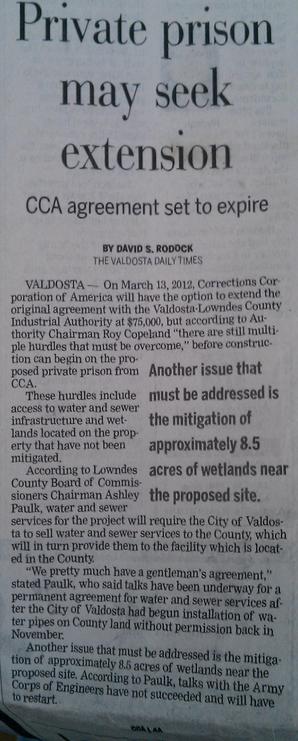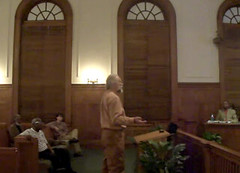 Former Sheriff Paulk luke-warm; Sheriff Prine completely opposed.
Water and sewer, wetlands, federal funding: all hurdles, says Paulk.
Sheriff’s Association also opposed, says Prine.
More in the VDT article.
Former Sheriff Paulk luke-warm; Sheriff Prine completely opposed.
Water and sewer, wetlands, federal funding: all hurdles, says Paulk.
Sheriff’s Association also opposed, says Prine.
More in the VDT article.
Lowndes County Sheriff Chris Prine has also shared his thoughts on the private prison industry:Here’s video of Sheriff Prine saying most of that a few weeks ago.“If I’m going to house an inmate and if I’m going to be responsible, I’d rather them be in my facility not a private prison,” said Prine. “If I’m going to be responsible for them I want them to be within my reach. the Sheriff’s Association feels the same way I do. I’d say the large majority of Sheriff’s feel the same way about this. I don’t want a private facility handling my prisoners.”
They also mentioned the petition and quoted me:
“If those signatures and calls are making any impression on the Authority they certainly don’t admit to it,” said Quarterman. “This is another Lofton (Brad Lofton, former Authority executive director) project. It’d be nice if the Industrial Authority represented the community they were located in.”Do you want the Industrial Authority to notice? You can sign the the petition, or send VLCIA your own letter, or write a letter to the editor to the VDT, or….
-jsq




 its general meeting in Quitman this weekend in support of the Quitman 10.
The big public event is this afternoon:
its general meeting in Quitman this weekend in support of the Quitman 10.
The big public event is this afternoon:







